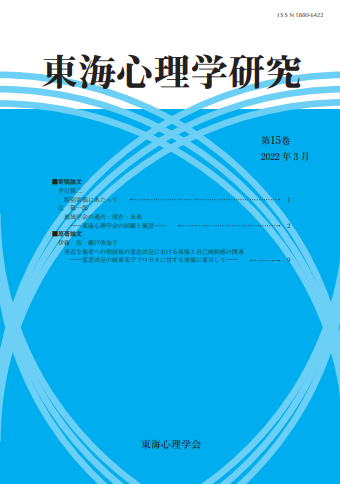This article reviews the 70-year history of the Tokai Psychological Association (TPA). It started in 1951 as a regional academic society, serving the psychologists’ community in the Tokai region. Since then, members have founded a common ground for scholarly communication and exchange, providing a forum for presenting their research, and engaging in symposia at annual conferences and monthly meetings. However, in the last few decades of the 20th century, TPA was faced with much difficulty, due to the successive establishment of many field-specific academic organizations, both national and regional. These organizations can be categorized into three types; interdisciplinary academic societies for corresponding to paradigm shifts (Type-Ⅰ); societies corresponding to the increasingly fractionalized subfields of psychology (Type-II); and societies responding to the social demands of the times (Type-Ⅲ). Without doubt, the rise of these organizations has influenced the role and state of TPA. The future of TPA should consider taking on complementary roles in coexistence with these field-specific societies. In particular, it is suggested for TPA to take actions toward promoting itself to social and educational issues of the local communities. To attain such new goals, the formation of a master-planning committee, along with fortifying the network for cooperation amongst similarly regionally-based organizations are warranted.
抄録全体を表示
